AMD introduced the new Zen 5 series architecture at COMPUTEX 2024, unveiling consumer processors that leverage this advanced architecture. Among the new products are the Ryzen 9000 series for desktops and the Ryzen AI 300 series for mobile, codenamed "Strix Point." This series includes the Ryzen AI 9 HX 370 and Ryzen AI 9 365 models.
Recently, a tech enthusiast (@David Huang) obtained an engineering sample of the Ryzen AI 9 365 and performed some preliminary tests. The processor is equipped in an FP8 package and was tested with 32GB of LPDDR5X-7500 RAM. However, details such as TDP configuration were not provided.
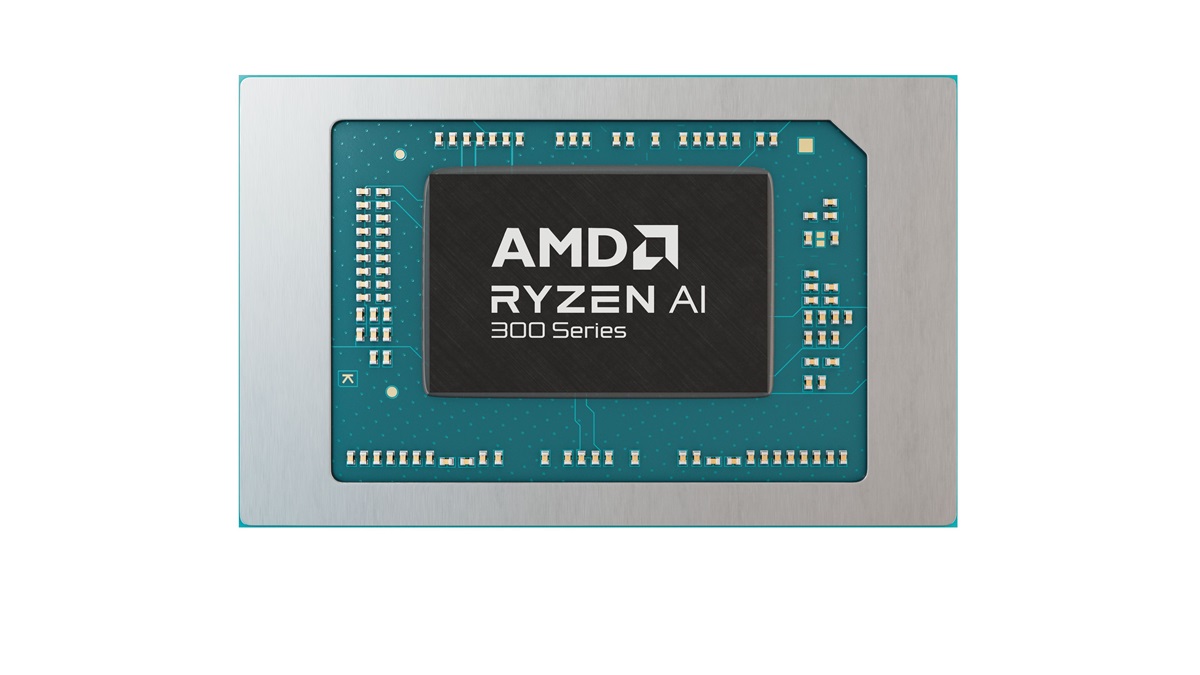
The Ryzen AI 9 365 boasts a hybrid CPU architecture, incorporating cores from both the Zen 5 and Zen 5c architectures in a combination of 4 Zen 5 cores and 6 Zen 5c cores, totaling 10 cores and 20 threads. Additionally, it features 34MB of L2+L3 cache. Its GPU component is based on the RDNA 3.5 architecture, featuring up to 16 CUs. The processor also includes the new XDNA 2 Neural Processing Unit (NPU), which delivers 50 TOPS performance, surpassing Microsoft's 40 TOPS requirement for next-generation AI PCs that can handle AI workloads like Copilot locally.
After four generations of mobile processors offering 8-core designs and three generations utilizing native 8-core CCXs, AMD has introduced a significant change with Strix Point. This lineup falls into the native 12-core category, consisting of two asymmetric CCXs: CCX0 is composed of 4 Zen 5 cores with 16MB of L3 cache, showcasing a streamlined cache design compared to desktop processors. CCX1 consists of 6/8 Zen 5c cores with 8MB of L3 cache, maintaining the same microarchitecture as Zen 5 but optimized for lower power consumption. The Zen 5 cores can accelerate up to 5.0 GHz, while the Zen 5c cores reach up to 3.3 GHz.
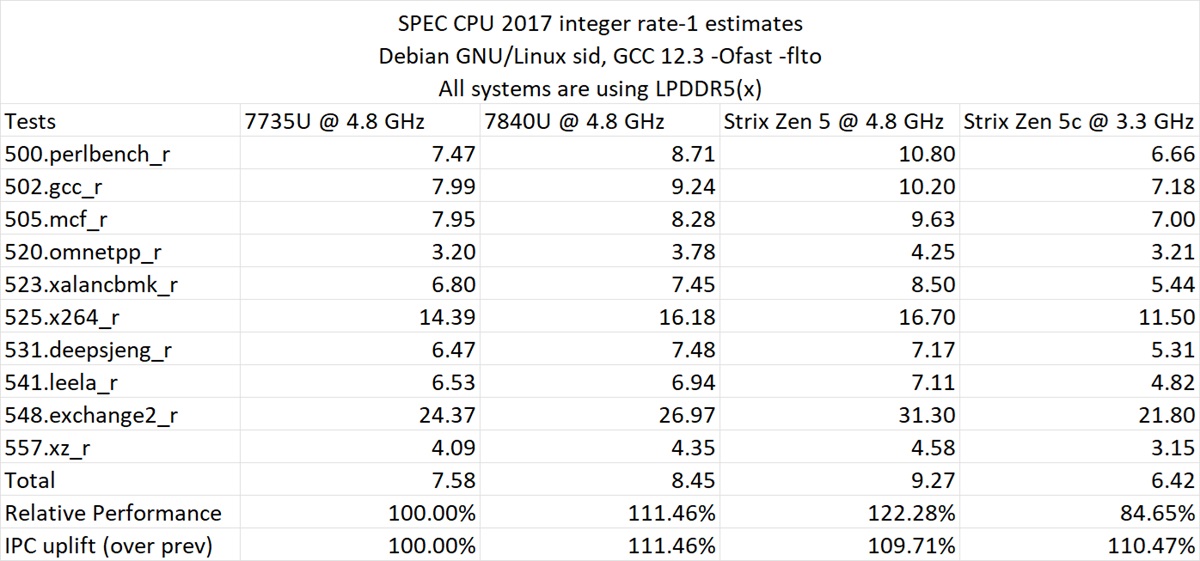
During the SPEC CPU 2017 rate-1 test, the processor's frequency was set to 4.8 GHz to avoid temperature issues in some sub-tests. Results indicated a 9.71% improvement in integer IPC for Zen 5 architecture cores compared to the previous Zen 4-based processors.
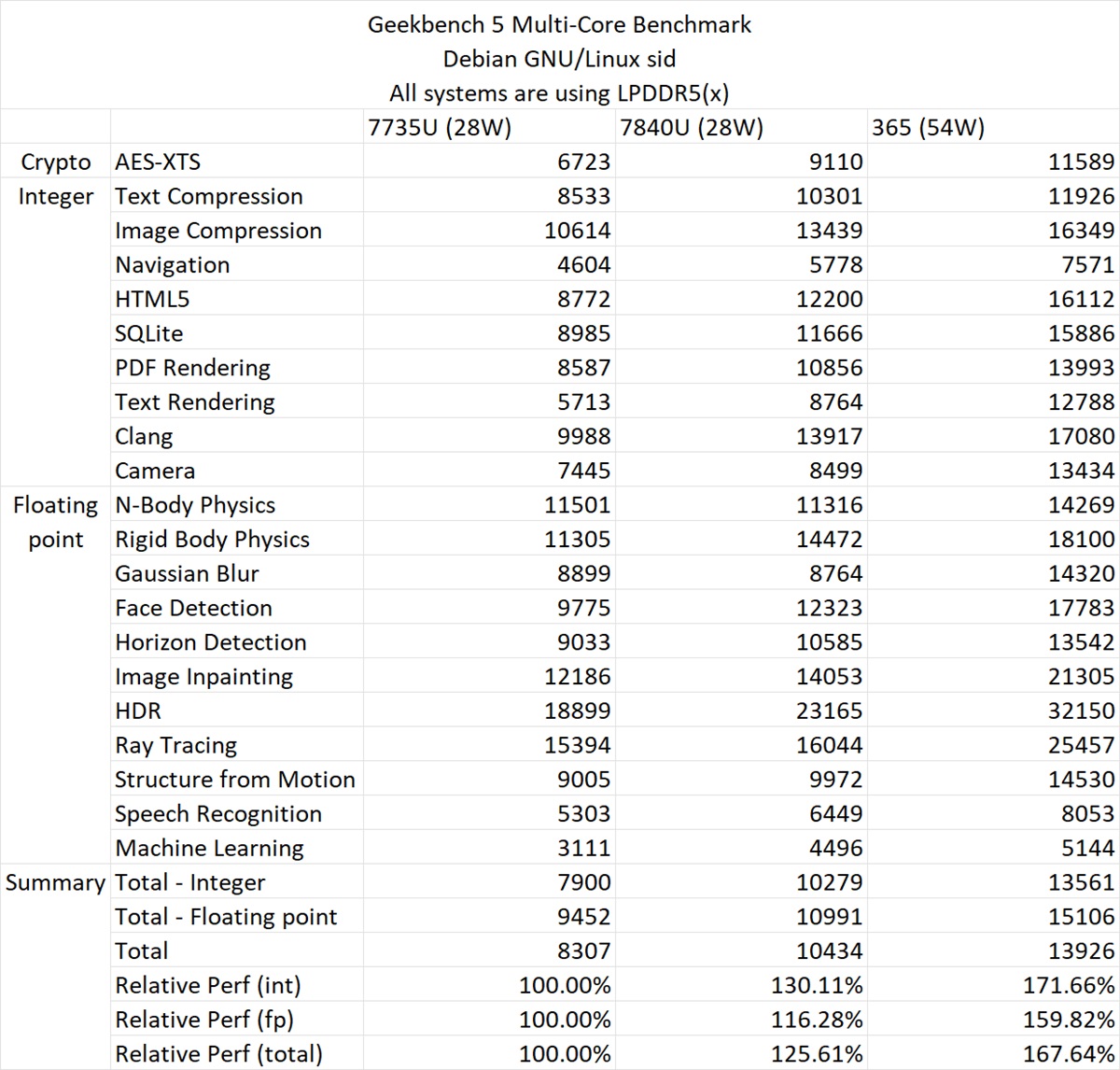
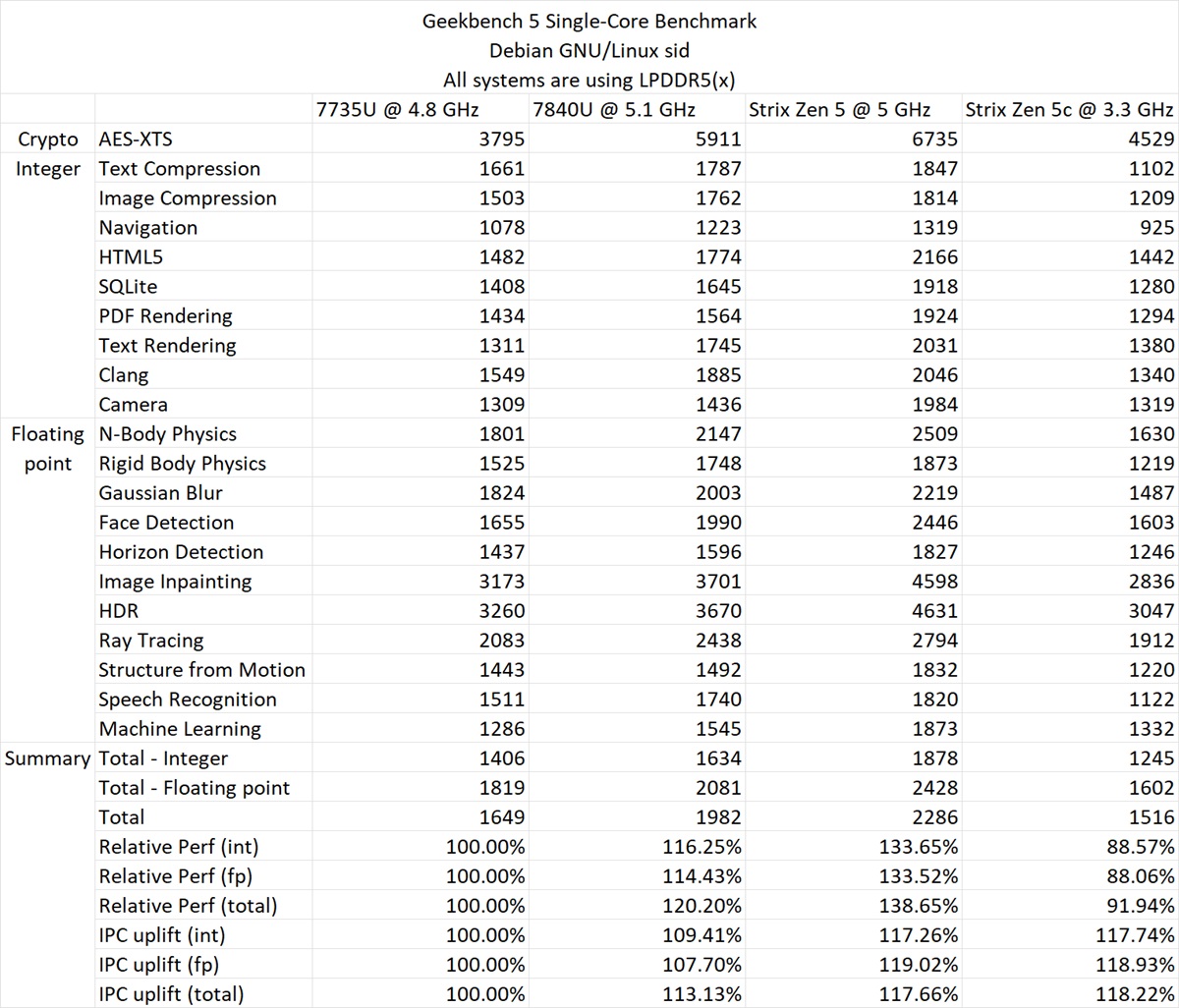
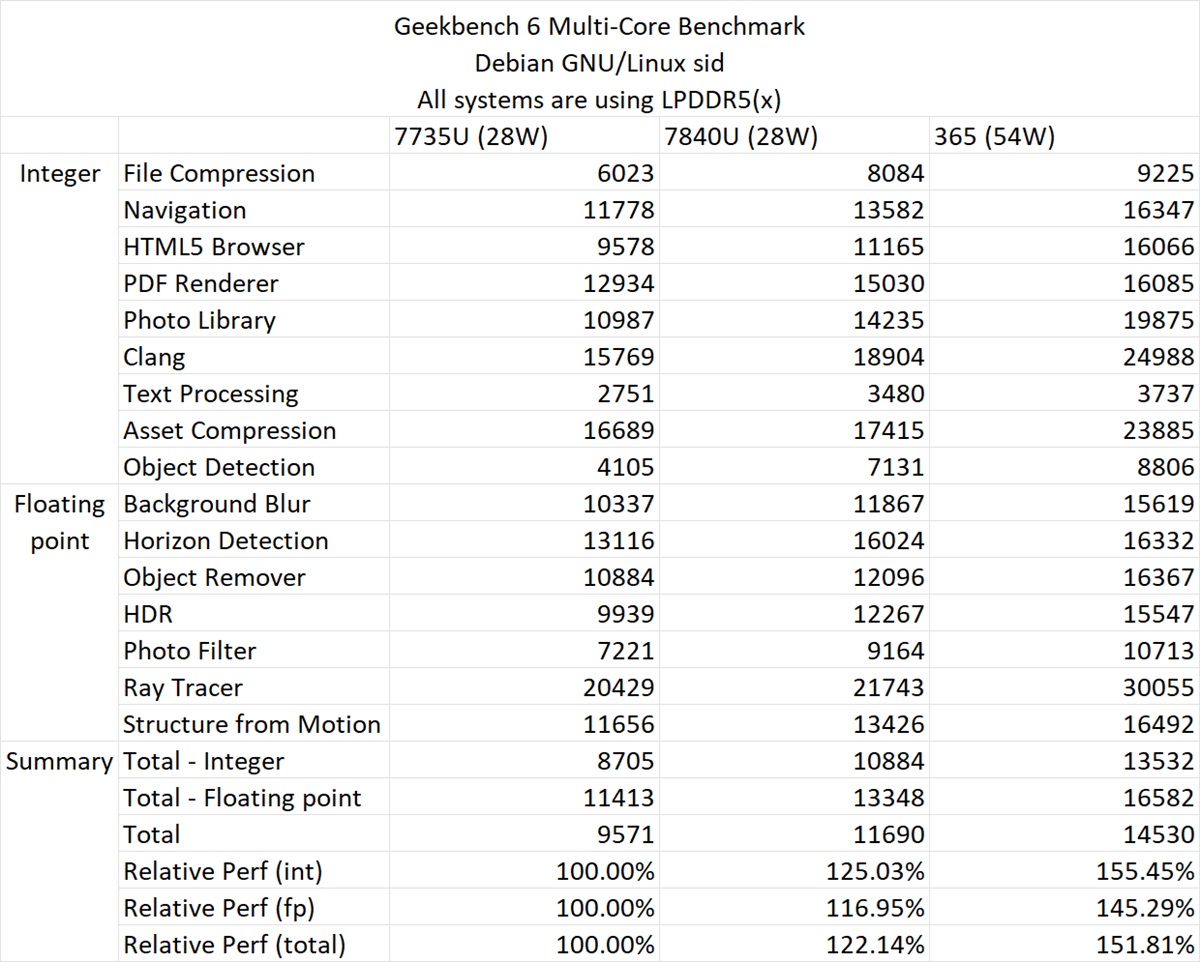
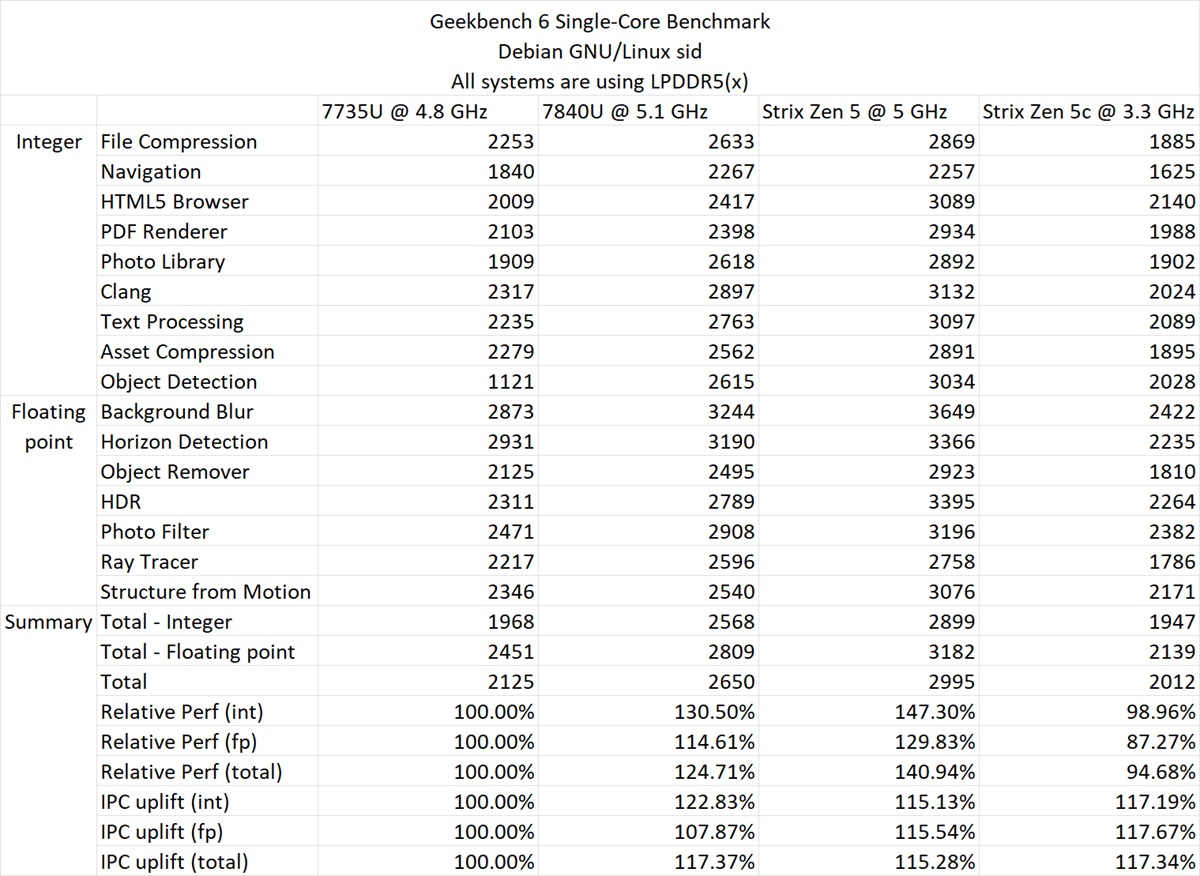
In Geekbench 5 and 6 tests, the single-core IPC performance improvements for the Zen 5 architecture were 15.28% and 17.66%, respectively, aligning with AMD's official claims of a 16% increase.